Recently updated on May 5th, 2023 at 09:48 pm
Since the publication of this article, PPS’s current math supervisor has not been retained and will not be returning for the 2023-2024 school year.
This article, based on contributions from a PPS student and a few parents, is the second piece of the series aimed at bringing to light long-standing issues within the Princeton Public Schools that have remained largely unknown to the public outside of PPS families, and have been overlooked by district leadership. You can find the first one at The Alarming State of PPS’s Math Education (I): Stories From Parents. — editor
Parents in the Princeton Public School (PPS) district have expressed concerns about the district’s declining academic performance in recent years. The once great district has now turned into an undesirable place for learning. The latest School Performance Reports released by the Department of Education of New Jersey have further validated the concerns raised by parents.
As the Algebra I/Geometry/Algebra II reports show, the percentage of testers who met or exceeded state expectations have been steadily decreasing. In Geometry and Algebra II, PPS has even scored below the state level in the school year of 2021/2022.
The statistics below show the decreased performance of Princeton Middle School over the past few years. In the 2021-2022 school year, only 53% of students met or exceeded state math expectations.
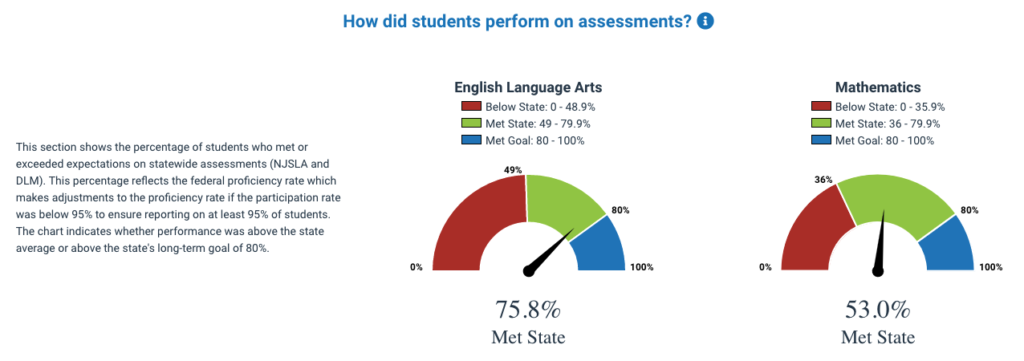
Data for 2019-2021 are not available due to the pandemic.
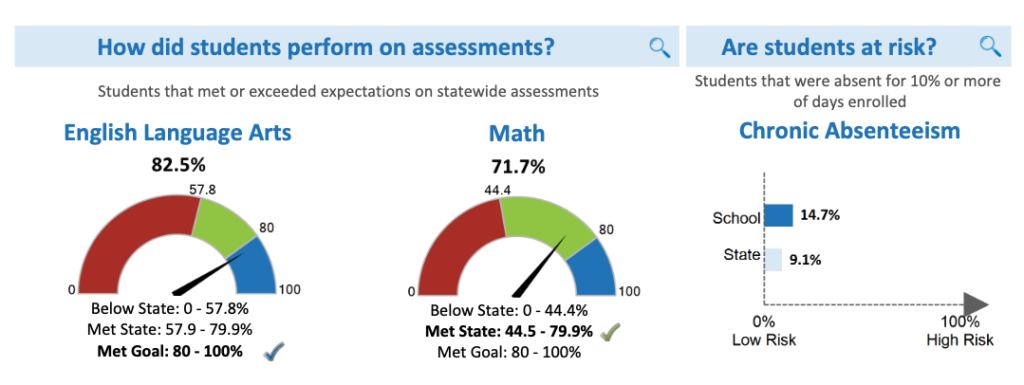
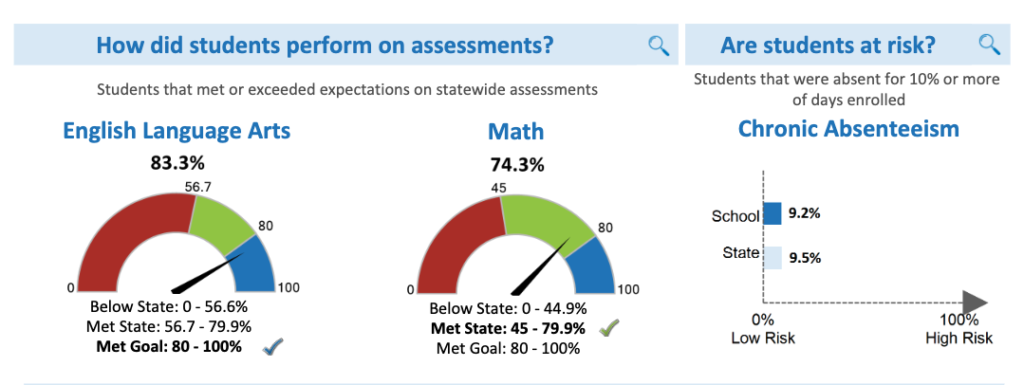
Cross-district Comparison
Comparing PPS with its neighboring towns like Montgomery, Robbinsville and Princeton Junction, we see a substantial difference in performance. It is worth noting that this simply can not be attributed to the impact of the pandemic: the pandemic impacted every school district, not just Princeton. Yet, as expected, Princeton district’s leadership conveniently cites the pandemic as reason to deflect accountability. In a public email sent to the entire PPS community on 4/12/2023, the district superintendent Dr. Kelley stated the following:
“This is the first set of post-COVID data. PPS, along with districts similar to PPS known as “I” Districts, saw student performance drop in some categories.”
Dr. Carol L. Kelley, Superintendent of Schools
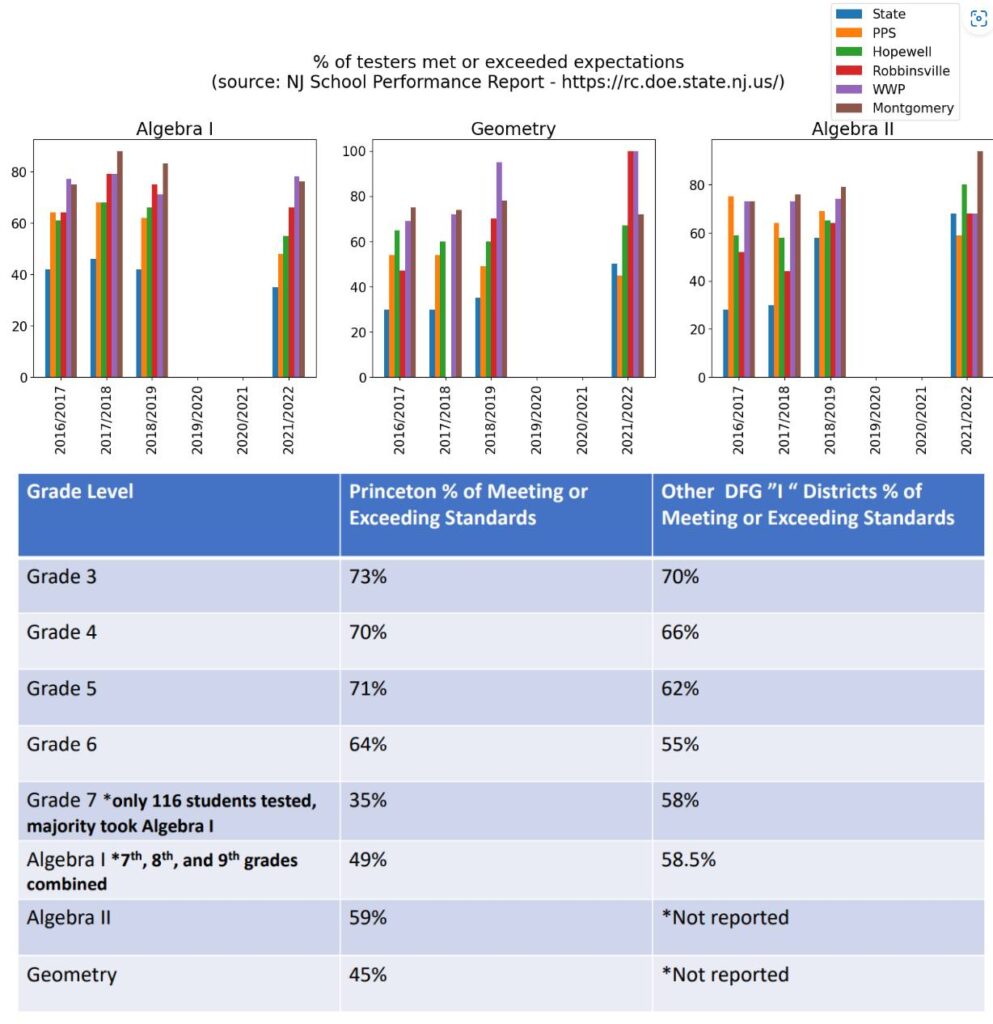
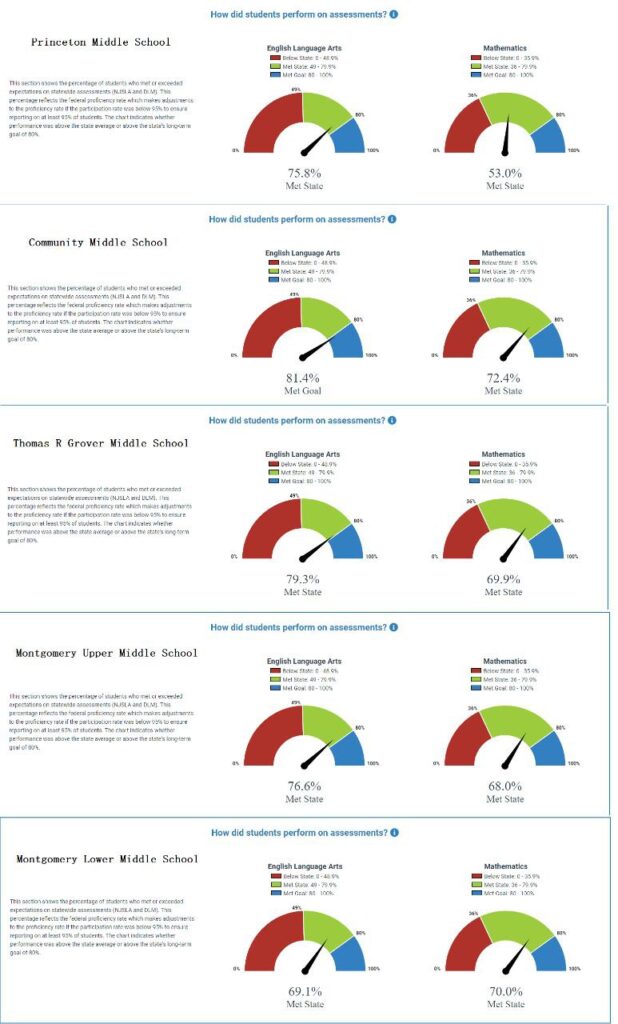
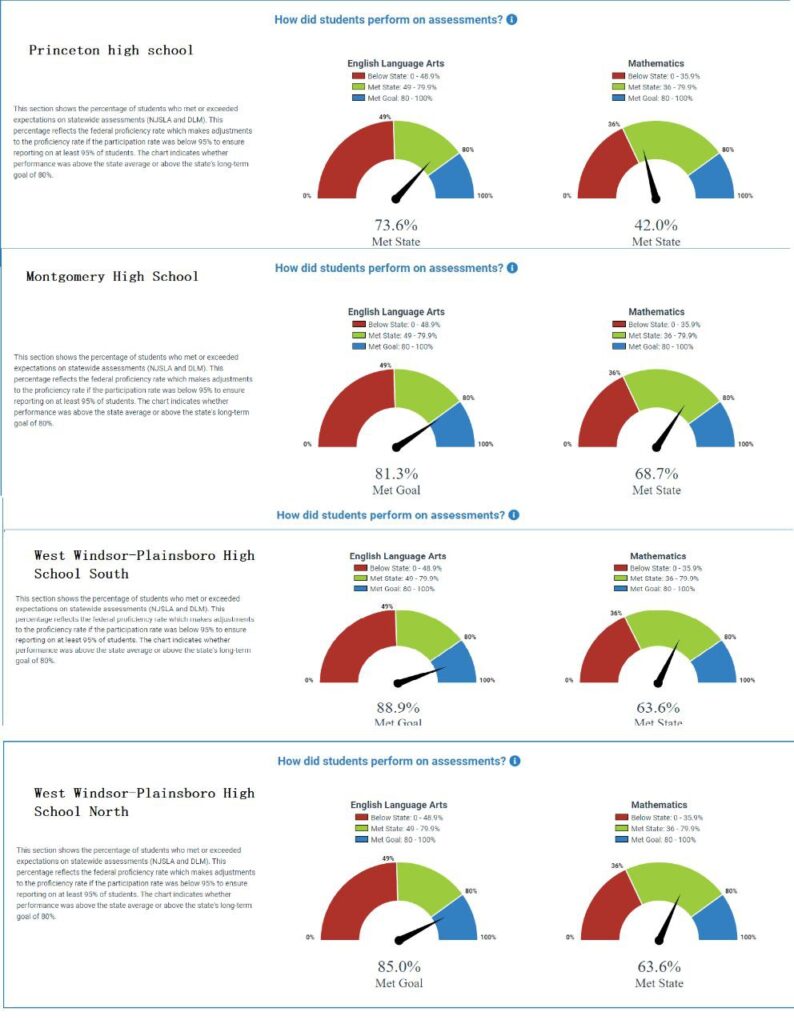
Impact on Economically Disadvantaged Students
Quality public education is often the only opportunity for economically disadvantaged students to receive good education. How have Princeton public schools served them? Let’s take a look at the data from 2022 NJSLA:
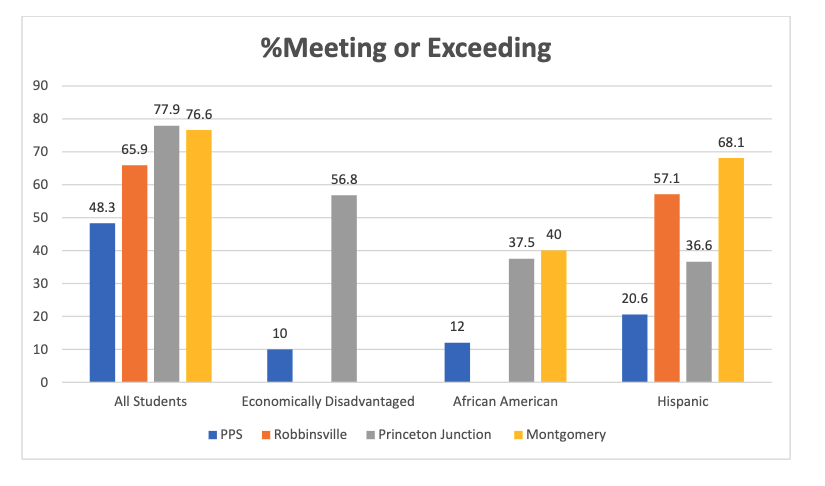
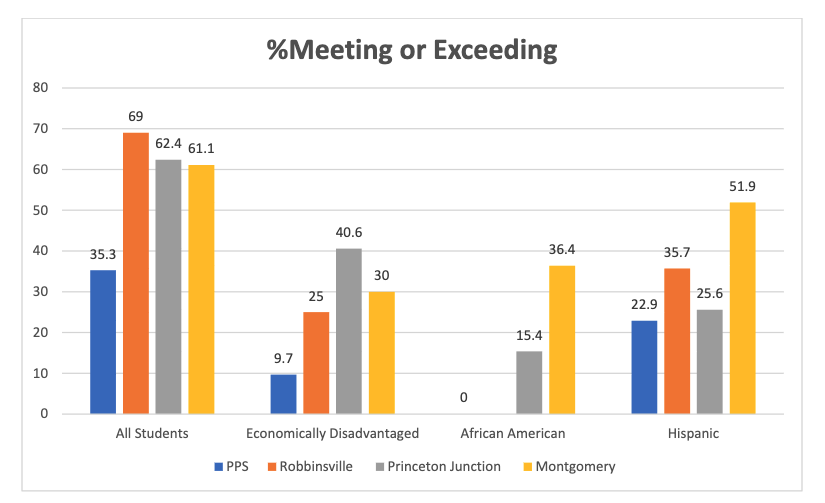
- Princeton Middle School (economically disadvantaged students): 11% Meeting or Exceeding, 0% Exceeding
- Thomas Grover Middle School (economically disadvantaged students): 72.3% Meeting or Exceeding, 5.6% Exceeding
As demonstrated by the charts above, Princeton Public Schools (PPS) had poorer performance in math compared to neighboring schools, such as Robbinsville, Princeton Junction, and Montgomery, for both “Economically Disadvantaged Students” and “The Whole Student Body” categories.
It’s time to ask a fundamental question: is the education reform pursued by the current district leadership truly achieving equity for all students, as they advocate? Unfortunately, the outcome seems to be even more inequitable, especially for students who require additional support from their schools.
The Direction
The district’s pursuit of equity is laudable, but its practice has been called into serious question. A research report produced by a group of PPS parents in May 2022 gives a detailed analysis on the negative effect detracking could have on students’ performance in math. (This detracking policy was spearheaded by the district leadership based on a report produced by an expensive ($47,000) consultant Dr. Milou, who is well-known for his anti-tracking agenda. The district also paid $92,000 to the consulting firm, Performance Fact, to advise on a new strategic plan centered on equity. Performance Fact informed the Princeton community that equity demands “equal outcomes, without exception” for every student. And now the district leadership deny they are pursuing the detracking, which is contradictory to what’s happening in PPS’s math department.)
One has to wonder, which group of students benefit from this initiative, as the evidence in declining academic standards do not seem to serve the best interests of any student group or the community at large. There is concern that personal ideologies and agendas that are not aligned with the broader constituency may be prioritized over students’ academic success.
Editor’s notes:
It is with a heavy heart that we conducted this research, and we anticipate releasing another one soon on the same topic.
References for Interested Readers
- An Inequitable New Approach to Equity in Princeton Public Schools, May 2022
- https://www.joannejacobs.com/post/algebra-for-none-fails-in-san-francisco
- http://www.pragmatic-equity.com
- Report for Princeton High School from NJDOE (2021-2022)
- Report for Montgomery High School from NJDOE (2021-2022)
- Report for West Windsor – Plainsboro North High School from NJDOE (2021-2022)
- Report for West Windsor – Plainsboro South High School from NJDOE (2021-2022)
0 Comments
1 Pingback